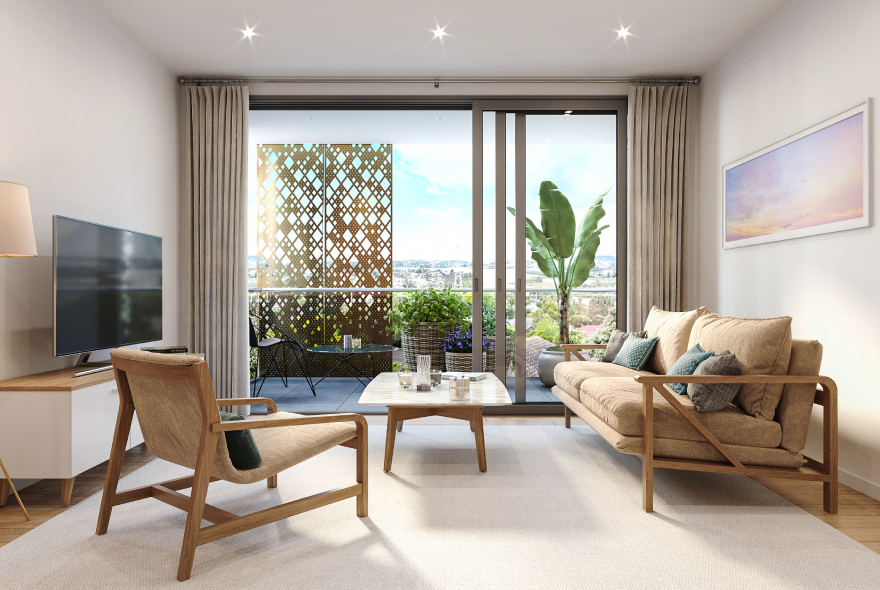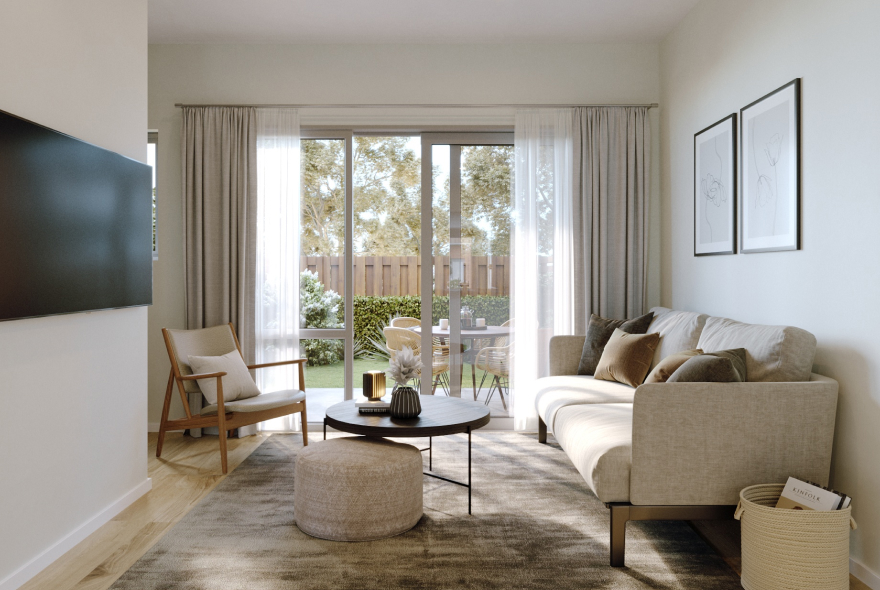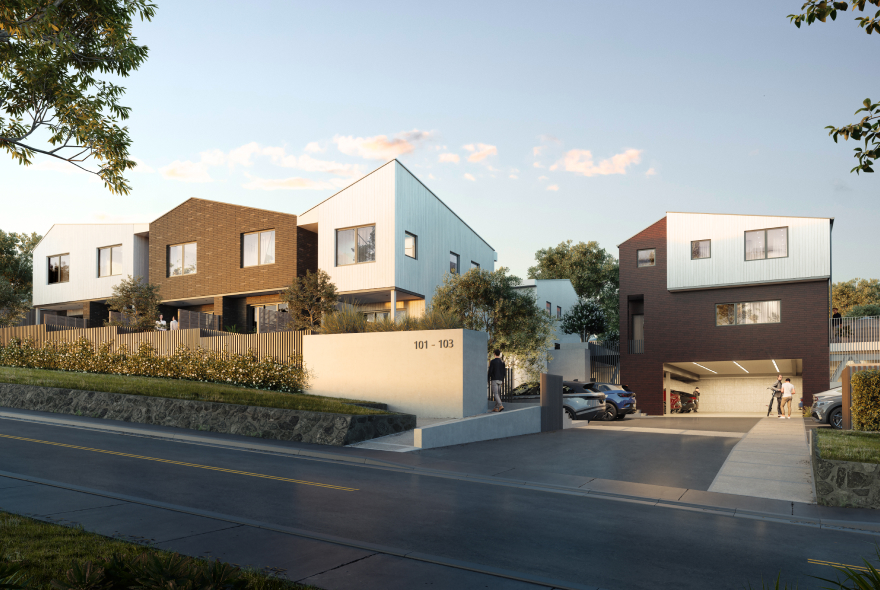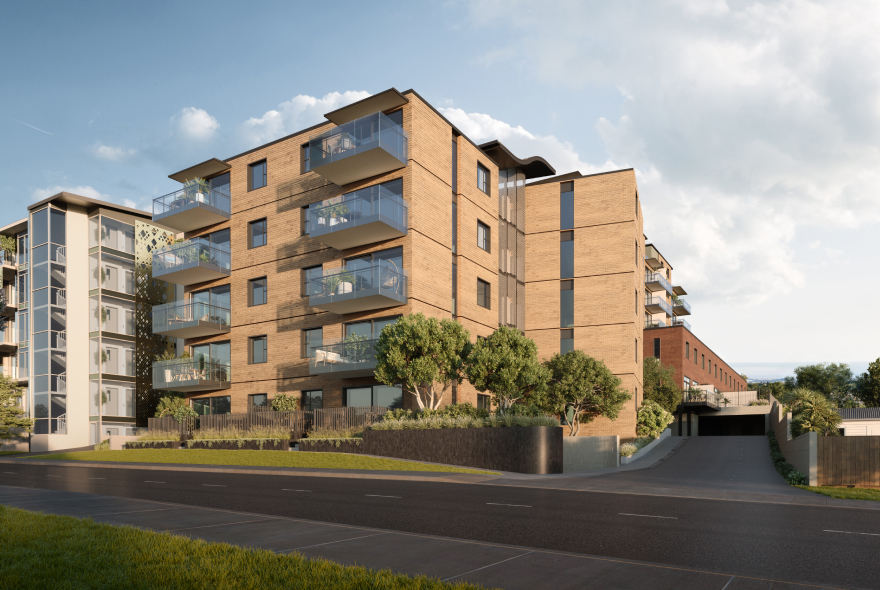Home buying made easy
Your journey to becoming a home owner starts here. All you need to know about buying off-the-plan.


Our latest off-the-plan homes for sale
Filter by:
Gain the benefits
of buying off-the-plan
When purchasing a property from Du Val we only require a 10%* deposit upfront. The remainder of the balance is not due until settlement.
*The deposit is based on 10% of the agreed sale price payable to Du Val (the developer)'s solicitor and held in trust until project completion. Please consult your bank or mortgage professional for more information about lending criteria for your personal circumstances.
One of the most exciting opportunities that comes from buying a home ‘off-the-plan’ is that you can lock in the ownership of a property without having to settle for an extended period of time.
It may be one or two years before settlement, so Capital Growth while your property is being built can often make your initial deposit more valuable in the meantime.
Buying off-the-plan allows for the benefit of time. A longer settlement period means you have some breathing room to take care of the overall investment, like tiding up your finances, saving money and reducing the total amount you need to borrow.
Plus, you’ll also have more time to reduce any existing debts. If you intend to be an owner-occupier, this time can also be used to organise moving house, too.
Things can change in life, and we think people need flexibility to make decisions without worrying about tax. If you’re a landlord and want to sell, then you may need to wait 10 years before your property will fall outside the Bright-line Rules unless you want to pay tax on the capital gain of the property. New build properties built after 27th March 2021 fall outside the Bright-line Rules after 5 years, thus can be sold without having to pay tax on the capital gain of the property. A lot can happen over 5 years let alone 10 which is why we love new build homes to live in and for investment°.
°This is not tax advice. You should consult an accountant or tax advisor for tax advice.
Did you know that tax is often the second largest expense a property investor has if they don’t buy the right property. Off-the-Plan properties qualify for the exemption that applies to new builds, thus interest costs on new build properties are generally deductible. Unlike a second-hand home built before 27th March 2021, purchasers will generally enjoy 20 years of interest deductibility from the date when the CCC is issued. The 20-year exemption is transferrable to future owners of the property, potentially making the property more attractive to potential buyers if sold within that period and potentially saving you a great deal of tax as a landlord°.
°This is not tax advice. You should consult an accountant or tax advisor for tax advice.
For First home grant eligibility
check out this link
Existing vs New Builds
Specific deposit conditions for new homes versus existing homes can offer significant advantages to buyers who intend to reside in the property. For example, let's take a property valued at $850,000 to illustrate this point.
EXISTING BUILD
$170,000
Deposit Required (20%)

80%
% you can borrow of the property value
NEW BUILD
$85,000
Deposit Required (10%)
90%
% you can borrow of the property value
FAQs
A legally binding contract between a buyers and seller for the Sale and Purchase of a property. The agreement sets out all the agreed terms and conditions in writing.
There are two basic deposit types when buying and selling property:
- The amount the buyer pays the seller (to their solicitors trust account) when all purchase conditions in the Sale and Purchase agreement have been satisfied. This amount is generally 10% of the purchase price.
- The amount you need to contribute towards the purchase price of a property, before the bank will lend you the remaining amount.
Your deposit can include personal savings, KiwiSaver, Home Start Grant or a gift from family.
Equity is the difference between a property’s market value and the amount owed on the home loan.
A deposit is due once all purchase conditions in the Sale and Purchase agreement have been satisfied.
As well as the purchase price, you may need to cover the following costs: Solicitor/Lawyers Fees, Registered Valuations (if required by your bank/lender), Body Corporate Fees (if applicable), Moving costs, Property Management Fees, Insurance, Letting Fee (if the property is a rental), Accountant’s Fees.
This is when you meet all conditions in the Sale and Purchase agreement and give final acceptance to go ahead with the purchase.
A home loan is often described as a mortgage. A home loan is a type of loan where property is used as security. The borrower enters into an agreement with a bank (or another type of lender) where the bank lends money to the borrower to cover the cost of the property purchase. The bank then takes security (in the form of a mortgage) over the property. The borrower will continue making payments (generally principal and interest) over a set term until the home loan is repaid in full (including interest).
A mortgage is a legal instrument which is registered against the title of a property. It is the lender’s security for a loan giving the lender the right to, amongst other rights, take the property and sell it if the loan is not repaid.
How can we help?
Our experienced team can help guide you towards your property goals.
Connect with us for a FREE, no-obligation consultation with one of our team today.

